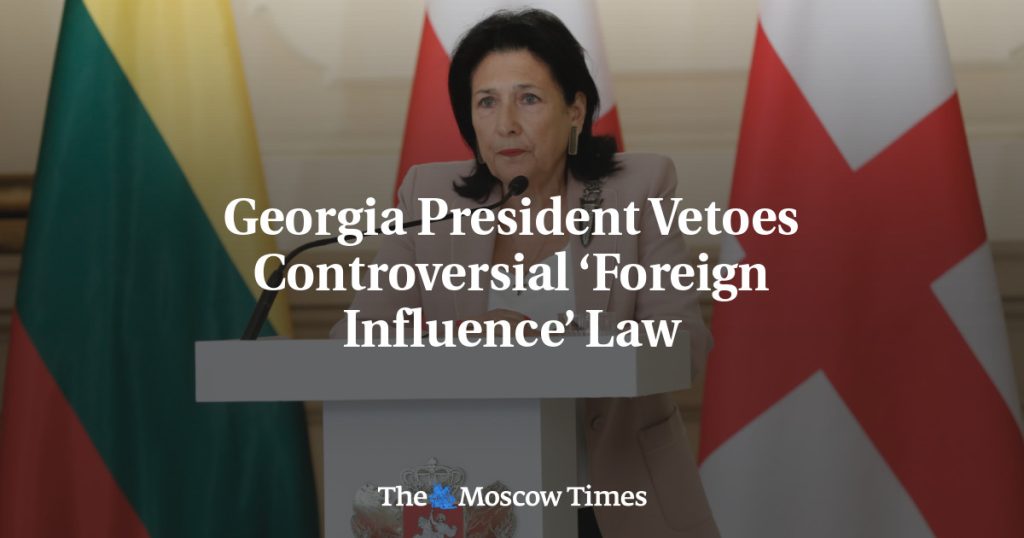Brussels has criticized Georgia’s recent decision to pass a controversial bill that requires NGOs and media outlets receiving more than 20% of their funding from abroad to register as bodies “pursuing the interests of a foreign power.” This measure has been deemed as “incompatible” with Georgia’s bid for EU membership, which is a goal enshrined in the country’s constitution. European Council chief Charles Michel has urged Georgian lawmakers to take advantage of the veto offered by President Salome Zurabishvili, calling it “a moment for further reflection” and an opportunity to keep Georgia on its EU path.
Despite the veto, Georgian Dream, which holds a majority in parliament, has the power to override it. Prime Minister Irakli Kobakhidze has indicated that his party is willing to consider Zurabishvili’s proposed amendments to the law if she lays them out in her veto document. However, Zurabishvili, who is in conflict with the ruling party, has stated that she will not engage in “false, artificial, misleading negotiations” with Georgian Dream. The passing of this bill has raised concerns about the potential impact on freedom of speech and the ability of NGOs to operate independently in Georgia.
The bill has sparked debate within Georgia and drawn criticism from international observers, including the EU. It is seen as a potential threat to the country’s democratic credentials and its European aspirations. Many fear that the measure could be used to target and suppress critical voices, particularly those funded by foreign donors. The requirement to register as a body “pursuing the interests of a foreign power” has raised questions about the government’s motives and its commitment to democratic values and principles.
Georgian Dream’s parliamentary majority gives it the power to push through the controversial legislation despite opposition from Zurabishvili and others. The ruling party has defended the bill as necessary to protect national security and prevent foreign interference in Georgia’s internal affairs. However, critics argue that it is a thinly veiled attempt to silence dissent and stifle independent voices in the country. The outcome of this political showdown will have significant implications for Georgia’s relationship with the EU and its prospects for eventual membership in the bloc.
The veto offered by Zurabishvili has created a temporary pause in the implementation of the bill, offering an opportunity for dialogue and negotiation between the government and opposition. This period of reflection could be crucial in determining the future direction of Georgia’s political landscape and its relationship with the EU. The international community will be closely watching how Georgian lawmakers respond to the EU’s concerns and whether they choose to amend or repeal the controversial legislation. The outcome of this legislative battle will have far-reaching consequences for Georgia’s democratic development and its aspirations for closer ties with the European Union.
In conclusion, the passing of the controversial bill in Georgia has sparked condemnation from the EU and raised concerns about the country’s commitment to democratic values and principles. The veto offered by President Zurabishvili has created an opportunity for further dialogue and negotiation between the government and opposition. The outcome of this political showdown will have significant implications for Georgia’s relationship with the EU and its prospects for eventual membership in the bloc. It remains to be seen whether Georgian Dream will choose to override the veto or engage in meaningful discussions to address the concerns raised by the EU and other critics. The coming days and weeks will be critical in determining the future direction of Georgia’s political landscape and its aspirations for closer integration with Europe.


